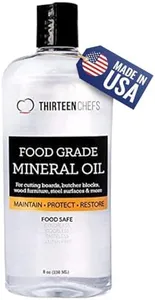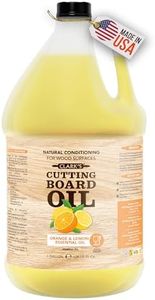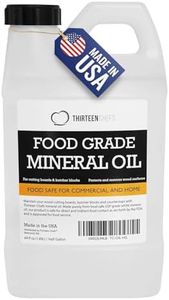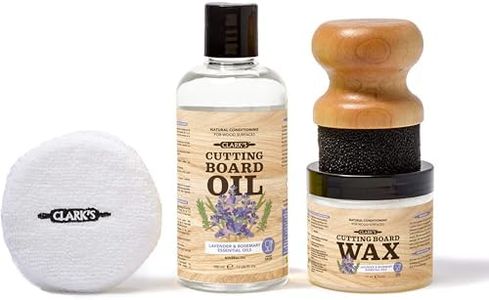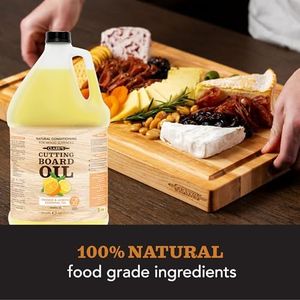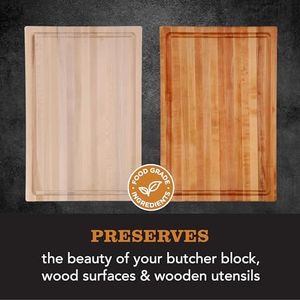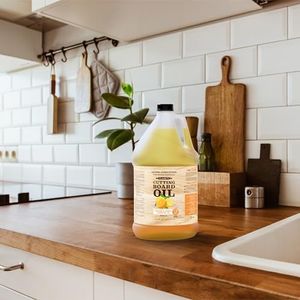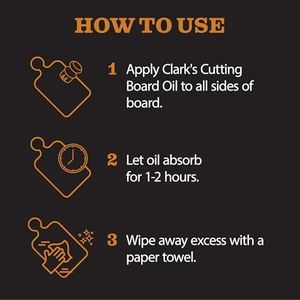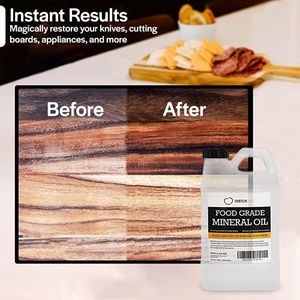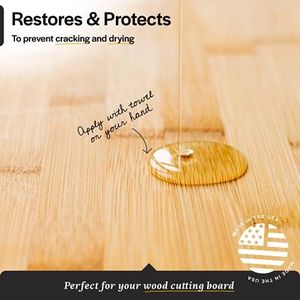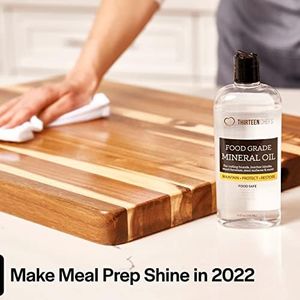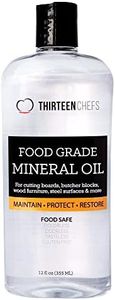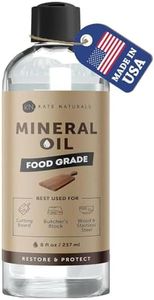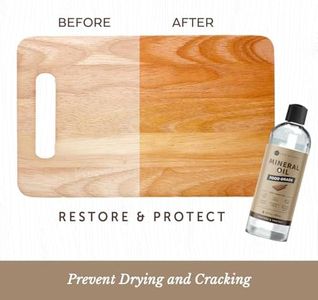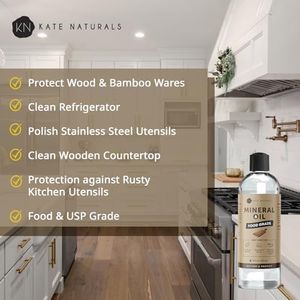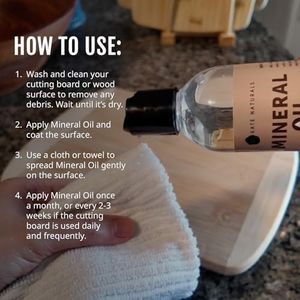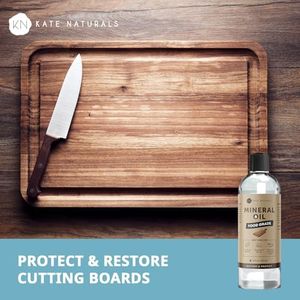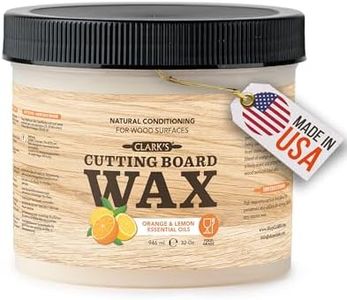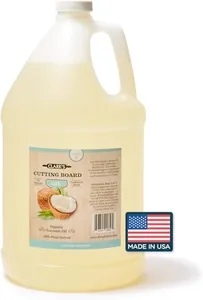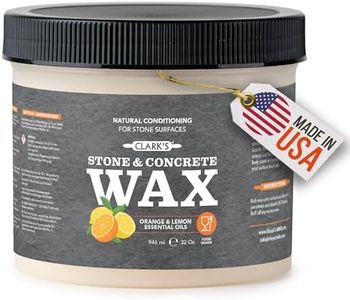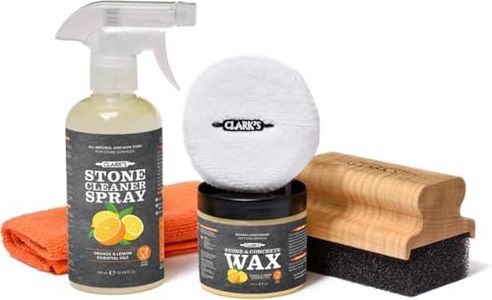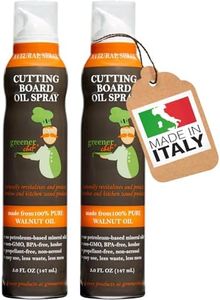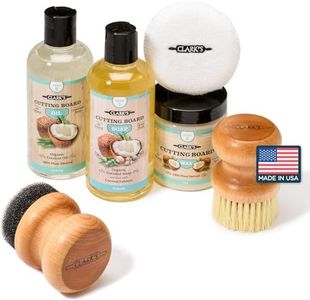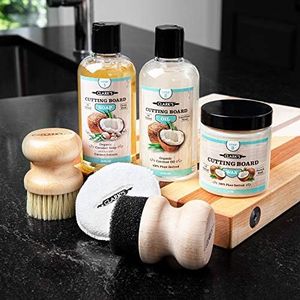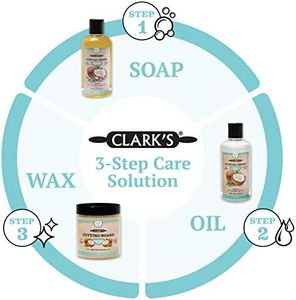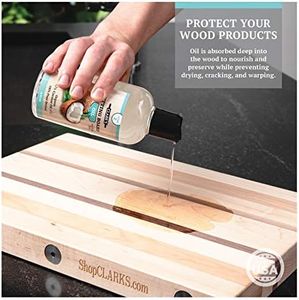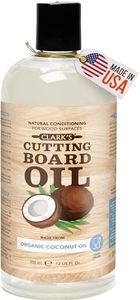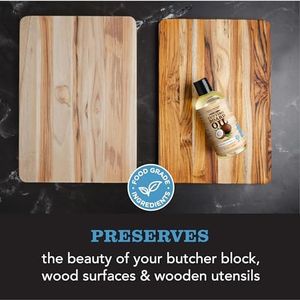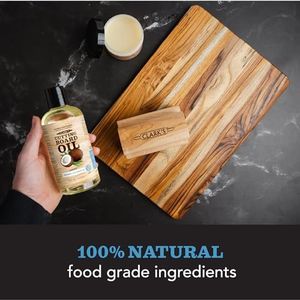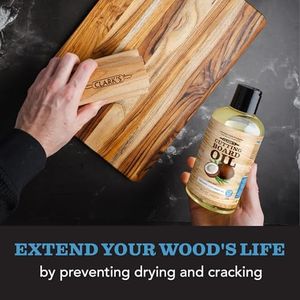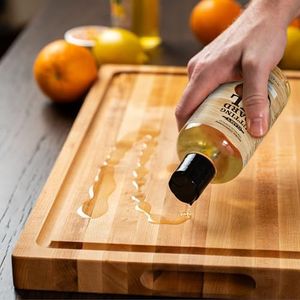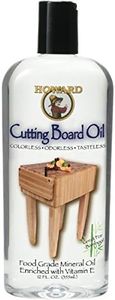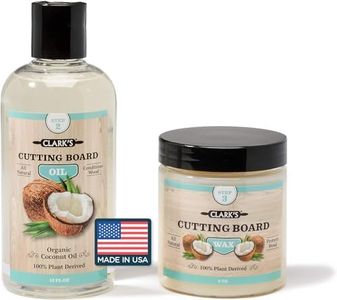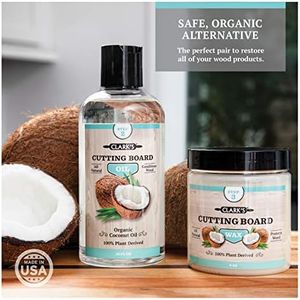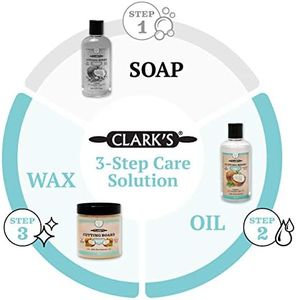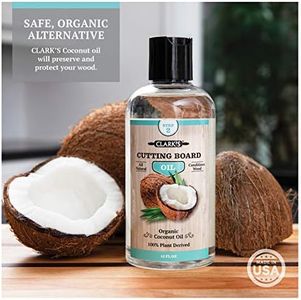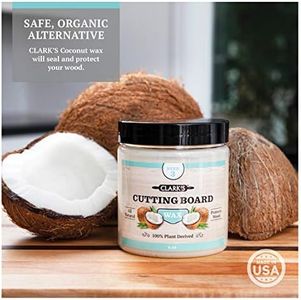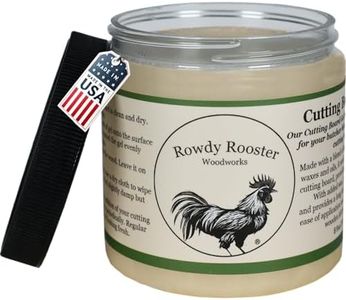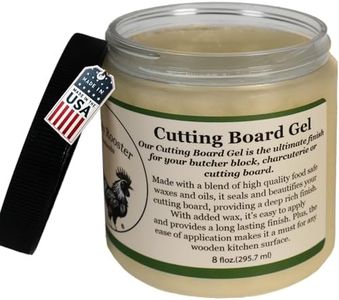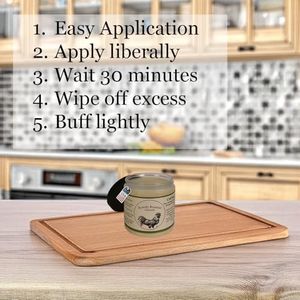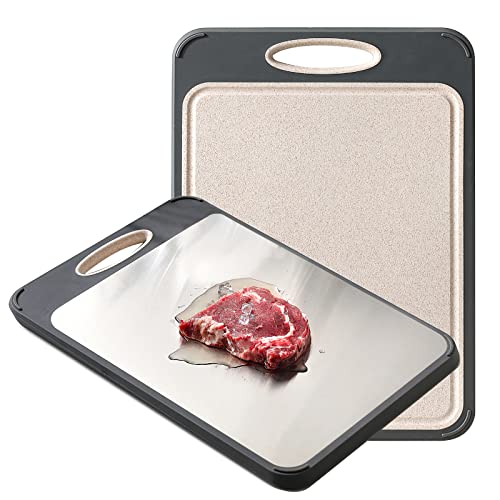10 Best Oil For Cutting Boards 2026 in the United States
Winner
Thirteen Chefs Mineral Oil - 8 oz Food Grade Conditioner for Wood Cutting Board, Countertop & Butcher Block, Lubricant for Knife or Meat Grinder - Safe USP Finish on Marble, Soapstone
The Thirteen Chefs Mineral Oil stands out in the category of oils for cutting boards thanks to its food-safe certification, making it an excellent choice for anyone looking to maintain their wooden kitchen tools. This oil is colorless, odorless, and tasteless, ensuring it won't affect the flavors of your food while being gluten-free adds to its appeal for those with dietary restrictions. Its easy application process, featuring a push-applicator cap, simplifies maintenance, allowing users to keep their cutting boards and butcher blocks in top condition with minimal effort. You only need to treat your board every three months, making it convenient for busy kitchens.
Most important from
43221 reviews
CLARK'S Cutting Board Oil - Food Grade Mineral Oil for Wood Cutting Board - Scented with Orange and Lemon Essential Oils - Butcher Block Conditioner - Restores All Wood - Made in USA, 1 Gallon
Clark's Cutting Board Oil is a food-safe mineral oil designed to nourish and protect wooden cutting boards and other kitchen surfaces. It meets strict food safety standards, which is crucial since the oil will touch food-prep areas. Unlike completely clear oils, it has a natural tint and is scented with lemon and orange essential oils, leaving a fresh kitchen aroma. This can be a nice bonus if you enjoy lightly scented products while conditioning your wooden utensils and surfaces.
Most important from
8969 reviews
Thirteen Chefs Mineral Oil - 64oz Food Grade Conditioner for Wood Cutting Board, Countertop & Butcher Block, Lubricant for Knife or Meat Grinder - Safe USP Finish on Marble, Soapstone
Thirteen Chefs Mineral Oil is a food-safe, colorless, odorless, and tasteless mineral oil designed specifically for conditioning wooden cutting boards, butcher blocks, and even some stone surfaces. Being food grade and gluten-free ensures it’s safe for kitchen use around food. The product has a medium viscosity that allows it to absorb well into wood, helping to prevent drying, cracking, and warping. Its absorption rate supports lasting protection without leaving a sticky residue.
Most important from
43221 reviews
Top 10 Best Oil For Cutting Boards 2026 in the United States
Winner
Thirteen Chefs Mineral Oil - 8 oz Food Grade Conditioner for Wood Cutting Board, Countertop & Butcher Block, Lubricant for Knife or Meat Grinder - Safe USP Finish on Marble, Soapstone
Thirteen Chefs Mineral Oil - 8 oz Food Grade Conditioner for Wood Cutting Board, Countertop & Butcher Block, Lubricant for Knife or Meat Grinder - Safe USP Finish on Marble, Soapstone
Chosen by 1205 this week
CLARK'S Cutting Board Oil - Food Grade Mineral Oil for Wood Cutting Board - Scented with Orange and Lemon Essential Oils - Butcher Block Conditioner - Restores All Wood - Made in USA, 1 Gallon
CLARK'S Cutting Board Oil - Food Grade Mineral Oil for Wood Cutting Board - Scented with Orange and Lemon Essential Oils - Butcher Block Conditioner - Restores All Wood - Made in USA, 1 Gallon
Thirteen Chefs Mineral Oil - 64oz Food Grade Conditioner for Wood Cutting Board, Countertop & Butcher Block, Lubricant for Knife or Meat Grinder - Safe USP Finish on Marble, Soapstone
Thirteen Chefs Mineral Oil - 64oz Food Grade Conditioner for Wood Cutting Board, Countertop & Butcher Block, Lubricant for Knife or Meat Grinder - Safe USP Finish on Marble, Soapstone
Thirteen Chefs Mineral Oil - 12oz Food Grade Conditioner for Wood Cutting Board, Countertop & Butcher Block, Lubricant for Knife or Meat Grinder - Safe USP Finish on Marble, Soapstone
Thirteen Chefs Mineral Oil - 12oz Food Grade Conditioner for Wood Cutting Board, Countertop & Butcher Block, Lubricant for Knife or Meat Grinder - Safe USP Finish on Marble, Soapstone
Kate Naturals Mineral Oil for Wood Cutting Board, Butcher Block, and Knife. Food Grade Mineral Oil for Wooden Cutting Board & Utensils (8oz, Food Safe)
Kate Naturals Mineral Oil for Wood Cutting Board, Butcher Block, and Knife. Food Grade Mineral Oil for Wooden Cutting Board & Utensils (8oz, Food Safe)
CLARK'S Cutting Board Care Kit with Coconut Oil - Includes Wax, Soap, Scrub Brush, Buffing Pad, and Applicator - for Kitchen Countertops, Butcher Blocks, Wooden Bowls and Utensils - Food Safe
CLARK'S Cutting Board Care Kit with Coconut Oil - Includes Wax, Soap, Scrub Brush, Buffing Pad, and Applicator - for Kitchen Countertops, Butcher Blocks, Wooden Bowls and Utensils - Food Safe
CLARK'S Cutting Board Oil - Food Grade Mineral Oil for Cutting Board - Coconut Extract
CLARK'S Cutting Board Oil - Food Grade Mineral Oil for Cutting Board - Coconut Extract
Howard Products Food Grade Mineral Oil for Wood Cutting Board - 12 oz, Pack of 1
Howard Products Food Grade Mineral Oil for Wood Cutting Board - 12 oz, Pack of 1
CLARK'S Cutting Board Care Kit with Coconut Oil - Includes Butcher Block Oil and Wax - Made with Refined Coconut Oil, Natural Beeswax, and Carnauba Wax - For Kitchen Countertops and Butcher Blocks
CLARK'S Cutting Board Care Kit with Coconut Oil - Includes Butcher Block Oil and Wax - Made with Refined Coconut Oil, Natural Beeswax, and Carnauba Wax - For Kitchen Countertops and Butcher Blocks
Cutting Board Gel - Wax and Oil Treatment in One - with Food Grade Mineral Oil & Beeswax-Butcher Block Conditioner, Cutting & Charcuterie Board Wax, Citrus Scent.-USA Made* (8 fl.oz)
Cutting Board Gel - Wax and Oil Treatment in One - with Food Grade Mineral Oil & Beeswax-Butcher Block Conditioner, Cutting & Charcuterie Board Wax, Citrus Scent.-USA Made* (8 fl.oz)
Our technology thoroughly searches through the online shopping world, reviewing hundreds of sites. We then process and analyze this information, updating in real-time to bring you the latest top-rated products. This way, you always get the best and most current options available.

